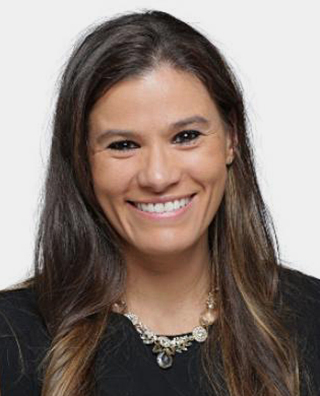Eclampsia and Preeclampsia in Pregnancy: Your Questions Answered
An OB-GYN explains these pregnancy conditions, who is at risk, and how eclampsia and preeclampsia are treated.

Eclampsia and preeclampsia are conditions in pregnancy where high blood pressure can cause a host of health problems, if not treated.
Preeclampsia affects about one in 25 pregnancies in the United States, according to the Centers for Disease Control and Prevention, and has been on the rise over the last two decades. Its complications can lead to eclampsia, a rare and severe condition in which a woman with preeclampsia has seizures.
“Eclampsia and preeclampsia can occur even in women who have been healthy their entire lives and have no history of elevated blood pressure,” says Dr. Whitney Booker, a maternal-fetal medicine expert at NewYork-Presbyterian/Columbia University Irving Medical Center. “For this reason, regular prenatal care and careful surveillance with your OB provider is essential in avoiding pregnancy complications. In addition, it is important to be aware of the warning signs of preeclampsia so women know when to check in urgently with their care team. This can lead to a safe and healthy outcome for both mom and baby.”
Health Matters spoke with Dr. Booker, an assistant professor of Obstetrics and Gynecology at Columbia University Vagelos College of Physicians and Surgeons, to understand what signs to look for, who is at risk, and whether eclampsia and preeclampsia can be prevented.
How do eclampsia and preeclampsia affect mom and baby?
The conditions can lead to a host of health issues if not treated quickly. For moms, preeclampsia can result in liver and kidney issues, organ failure, blood clotting problems, and fluid buildup in the lungs. Eclampsia is a serious complication of preeclampsia that causes seizures. If left untreated, both conditions can lead to death. For babies, preeclampsia and eclampsia can lead to premature birth, low birth weight, and, in severe cases, stillbirth.

Dr. Whitney Booker
What are the signs and symptoms of eclampsia and preeclampsia?
The most common sign of preeclampsia is elevated blood pressure — anything higher than 140 over 90, or in severe cases 160 over 110. Preeclampsia can happen gradually, or symptoms can develop rapidly, and it can occur in those who have never had high blood pressure before. Many patients aren’t aware that their blood pressure is so high and may feel perfectly fine. That’s why we do blood pressure checks so frequently throughout pregnancy.
A common symptom that I’ve come across in patients is that they say they just feel “off.” They feel lethargic, their head feels spacey — similar to how you might feel when coming down with a cold. That’s when I do a blood pressure check and go from there.
For more severe cases, symptoms can include:
- Body swelling (hands, legs, feet, face, or entire body)
- Severe headaches
- Temporary vision loss or blurry vision
- Abdominal pain, usually in the upper right side
- Shortness of breath
- Nausea or vomiting
People with eclampsia can have the same symptoms, though not everyone with eclampsia has the classic preeclampsia signs. Eclampsia causes seizures and can lead to confusion and a coma.
When should you see your doctor?
If you are experiencing any of the above symptoms or are just feeling “off,” call your doctor right away. It is always better to be overly cautious. With early diagnosis and prompt treatment, preeclampsia and eclampsia can be managed to keep you and your baby safe.
How is it diagnosed?
Diagnosis of preeclampsia requires an evaluation by your OB provider. It entails a blood pressure check, blood work, a urine analysis to check kidney function, and a liver function test to check the liver. For eclampsia, diagnosis focuses on identifying preeclampsia and the presence of a seizure.
Regular prenatal visits are critical. Preeclampsia can be a silent condition. If a person isn’t checking their blood pressure regularly, it can be missed. It’s important to have access to a blood pressure cuff at home. The earlier it’s diagnosed, the better.
"With early diagnosis and prompt treatment, preeclampsia and eclampsia can be managed to keep you and your baby safe."— Dr. Whitney Booker
Who is most at risk?
We see preeclampsia more commonly among younger pregnant patients, for example in teen pregnancies, and in patients who become pregnant after 40 years old. Preeclampsia and eclampsia can occur more often in a first pregnancy or if the patient had preeclampsia in a previous pregnancy or is carrying multiples (twins, triplets).
Other risk factors include chronic health conditions such as hypertension (high blood pressure), heart disease, obesity, diabetes, kidney disease, and certain autoimmune conditions, including lupus.
Black and Latina women also are disproportionately affected. Unfortunately, we don’t know if that’s related to a genetic predisposition, underlying medical issues, or poor access to care. The reasons are still unclear. Black women have higher rates of pregnancy complications and maternal deaths overall, and this includes preeclampsia and eclampsia.
When do eclampsia and preeclampsia occur?
Both conditions usually occur after 20 weeks of pregnancy—in the second or third trimester. They can also occur in the days or weeks after childbirth.
How is it treated?
As soon as preeclampsia is diagnosed, mom and baby are very closely monitored. Once preeclampsia or eclampsia occurs, it cannot be reversed. The only real “cure” is to deliver the baby and placenta as safely as possible and at the right time. For preeclampsia, certain medications to reduce blood pressure may help prolong a pregnancy, but in some cases the baby must be delivered immediately to save either the mom’s or baby’s life.
For severe preeclampsia cases, mothers are often kept in the hospital so they and their unborn babies can be monitored. They may receive an IV medicine called magnesium sulfate to reduce the risk of stroke and seizures. For those with eclampsia, once the mom is stabilized, delivery is recommended.
Can it cause future health problems?
Eclampsia and preeclampsia can increase the risk for heart disease, chronic high blood pressure, and stroke later in life. Tell your doctor if you experienced the condition so your blood pressure, cholesterol and blood sugar are checked regularly.
What causes preeclampsia?
Experts are still working to understand why preeclampsia occurs. It is thought to be related to abnormal implantation of the placenta into the uterine wall very early in pregnancy, when blood vessels are forming and attaching. Other possible causes are excessive inflammation in response to pregnancy, insufficient blood flow to the uterus, hormone imbalances, and genetics, among others
Can preeclampsia and eclampsia be prevented?
While we don’t have a way to prevent preeclampsia yet, taking a low-dose aspirin (also known as a “baby aspirin”) once a day during pregnancy may reduce the risk of preeclampsia for those who are high-risk; ask your doctor. Managing preeclampsia closely with your OB-GYN and attending all of your prenatal appointments can reduce the risk of preeclampsia escalating into eclampsia.
The best way to reduce the risk of preeclampsia and eclampsia is to manage health conditions you can control. Before becoming pregnant, people should work with their doctors to modify their diets to lose weight if needed and help get their blood pressure or diabetes under control. You want to have the healthiest lifestyle before and during pregnancy.
Whitney A. Booker, M.D., is a maternal-fetal medicine expert at NewYork-Presbyterian/Columbia University Irving Medical Center and an assistant professor of Obstetrics and Gynecology at Columbia University Vagelos College of Physicians and Surgeons. Dr. Booker treats people in all stages of their pregnancy. She has many areas of expertise including heart disease in pregnancy, high-risk pregnancy, medical complications in pregnancy, and pre-term birth prevention.
Additional Resources
Learn more about our women’s health care at NewYork-Presbyterian.

